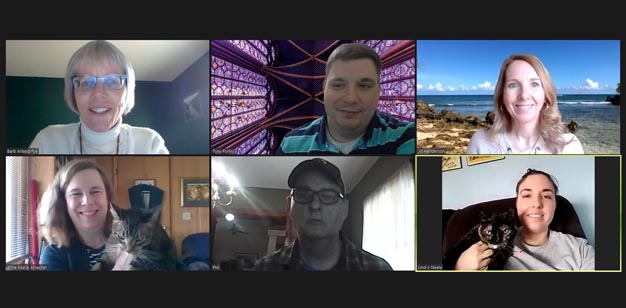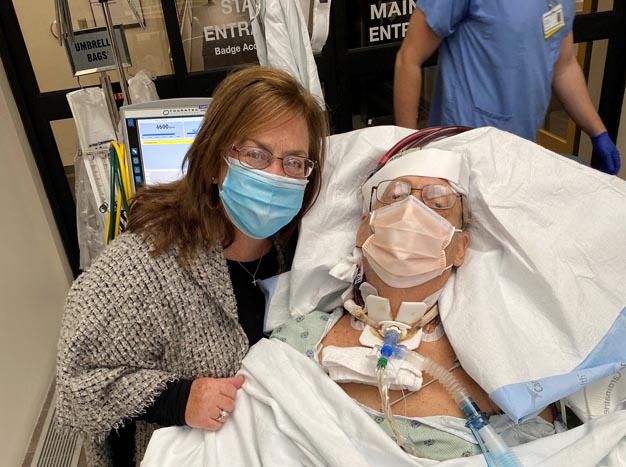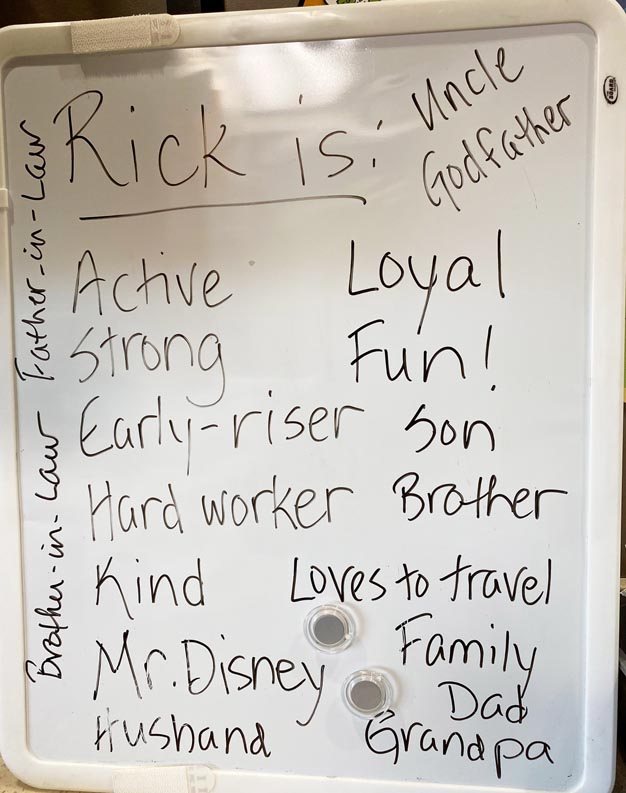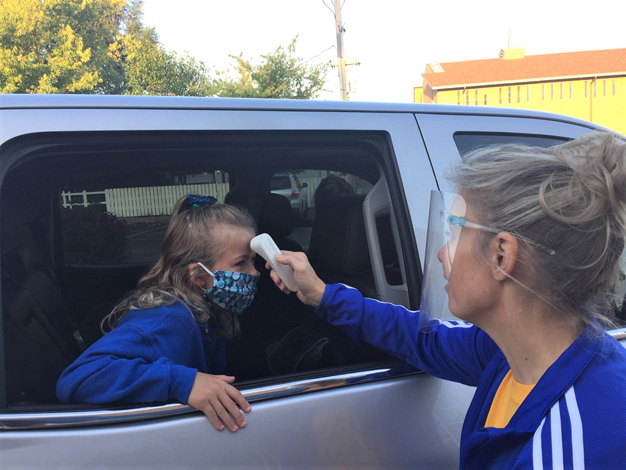
By Barb Arland-Fye
Editor
One year ago, our Catholic Messenger staff shared our reflections with readers of this column as we attempted to process the impact of an unfolding pandemic on our professional and personal lives. Assistant Editor Anne Marie Amacher suggested a follow-up column to commemorate an anniversary we did not want to think possible a year ago.
Anne Marie starts us off: A year ago, I honestly figured we would be working from our homes for only 2-3 weeks. I was a little off. Since last March, I have graduated from the dining room table to my daughter’s desk in the family room. Much better views in this room and I don’t have to set up and take down my computer each night. My husband got me a second monitor to make it easier to design pages.
He continues to work at the hospital and has had his vaccine. My daughter has gone off to college (5 minutes away, but living on campus). My son is back to school in person, full-time. All four of us have avoided COVID-19 (knock on wood).
My cats enjoy Tuesdays the most because I get to go to the office that day. Leo the cat has been doing a “Star Date” log (Star Trek reference there) on my Facebook account for most days since last spring. He’s counting down the days until I am out of here 5 days a week. I think doing this together keeps us both sane. Although there are several benefits to working at home, I miss adult interaction the most. The cats will have to do until our staff is back full-time in the office.
Tony Forlini (Webmaster): I both love and hate working at home even a year later. I’m just “choo-chooing” along the Messenger rail line, smoothing out the kinks. Just like all the others, I miss not being able to go to events, including funerals, and seeing others. I have more quiet time to do work and I have increased my time as a substitute for adoration of the Blessed Sacrament.
Phil Hart (Advertising Representative): To say that the last year has been disruptive to what I do is probably an understatement. I’m the outside guy at the Messenger. I call on businesses and organizations to advertise in the paper. Many businesses either closed or have had no interest in talking with me the last 12 months. The good news is that many regular advertisers have continued to support the paper. Most events that occur in the diocese have been postponed, so promoting them will have to wait until this pandemic is over. Overall, it has been challenging both professionally and personally being essentially locked up for the past year. The good news is that things seem to be getting better on the pandemic side and I am officially vaccinated as of last week!
Jill Henderson (Circulation/ Business Office Coordinator): In some ways, the past year has flown by. In other ways, it feels like it has just inched along. While in the midst of my February 2020 in-person performance evaluation, it never entered my mind that my 2021 evaluation would be by Zoom. A year ago, I didn’t realize I’d be watching the upcoming seasons change from my home office.
Last summer, concentrating on my work was sometimes hard while I watched my neighbors enjoy their backyard pool during the middle of my workday. The fall brought a backyard full of colorful leaves and the winter several inches of snow that is thankfully gone. Working from home has been a blessing, but I do miss the in-person interaction with my friends and coworkers at the chancery. As I sit at my desk and look out into my backyard, I see the grass beginning to turn green with the trees beginning to bud and it gives me hope for what is to come (which just might be my own backyard pool).
Lindsay Steele (Diocesan Reporter): At first, working from home was an unwelcome change. I missed the firm separation between mom life and work life, especially, but over time, I began to embrace it. The pandemic has given me the opportunity to bond with my 4-year-old son, Bradley, in ways I otherwise wouldn’t have. I love being able to pick him up from school and bracing myself for his running-start bear hugs. I love the snuggles he gives me before I put him down for his nap. I will always be grateful for the opportunity to experience those precious moments with him.
Barb Arland-Fye (Editor): Pope Francis says in his new book “Let Us Dream” that a “stoppage” such as the pandemic “can always be a good time for sifting, for reviewing the past, for remembering with gratitude who we are, what we have been given, and where we have gone astray….At such moments, we need others to walk with us.”
I appreciate walking with my staff, even if it is on Zoom. I have enjoyed bike rides that provide an exhilarating break from work, dinners at home with my husband and wonderful walks with my sons. I feel grateful to participate in the Mass, once again. I am more keenly aware that we are all in this together; we all need one another.
(Contact Editor Barb Arland-Fye at arland-fye@davenportdiocese.org)









